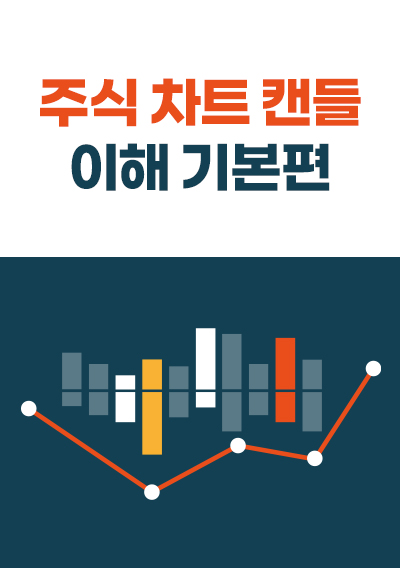[정치경제] The political impacts on the Korean economic crisis in 1997
*봉*
다운로드
장바구니
소개글
한국경제위기하에서의 정치적 영향을 분석한 대학원 석사 논문입니다.목차
CHAPTER ONEINTRODUCTION
CHAPTER TWO
2.1 OVERVIEW
2.2 HISTORY OF ECONOMIC DEVELOPMENT AND GOVERNMENT IVOLVEMENT
2.3 CHAEBOLS AND CRONYISM
2.4 LIBERALIZATION AND THE LURE OF FOREIGN MONEY
2.5 CORPORATE BANKRUPTCY
2.6 MORAL HAZARD
2.7 MODERNIZED VERSION OF BANK RUN
CHAPTER THREE
3.1 POLITICAL CYCLE THEORY
3.2 OPPORTUNISTIC MODLES IN KOREA
CHAPTER FOUR
4.1 THE GAME MODLE
4.2 LNSTITUTIONAL STRUCTURE OF KOREAN CENTRAL BANK AND
APPLICATION
CHAPTER FIVE
EMPIRICAL TEST AND RESULT
CHAPTER SIX
CONCLUSION
BIBLOGRAPHY
본문내용
CHAPTER IIntroduction
Most Asian countries went through severe economic crises during the second half of 1997. During the same period, equity and currency markets plummeted in most affected countries. As a result, growth rates for emerging Asian economies were small or even negative during 1997 and 1998; some countries, especially South Korea, suffered outright recessions during the same period.
Financial crises usually start with bank failure. Korea’s banking system collapsed because foreign creditors began to question structural flaws that emerged in Korea’s financial system; such flaws were the result of excess debt financing, crony capitalism, and weak regulation of financial intermediaries. Korea was also affected by contagion from the financial crises in the Southeast Asian countries and Japan. These are the generally accepted explanations for the cause of Korea’s economic turmoil during the last two years. Although these explanations are certainly sound, some questions remain to be answered. For instance, Why did the collapse happen in 1997? Structural flaws in the Korean economy were not emerging problems, but rather, chronic ones which had evolved over a long period of time
참고 자료
1. Alesina, A., G. D. Cohen, and N. Roubini. Political Cycles and the Macroeconomy. 1997. Cambridge, MA: MIT Press.2. Alesina, A., G. D. Cohen, and N. Roubini. Electoral Business Cycles in Industrial Democracies. 1993. European Journal of Political Economy. 23: 1-25.
3. Alesina, A., G. D. Cohen, and N. Roubini. Macroeconomic Policy and Elections in OECD Economies. 1992. Economics and Politics. 4: 1-30.
4. Alvarez, M., G. Garrett, and P. Lange. Government Partisanship, Labor Organizations and Macroeconomic Performance. 1989. American Political Science Review. 85: 539-556.
5. Clark, W. R., and M. Hallerberg. Strategic Interaction between Monetary and Fiscal Actors under Full Capital Mobility. 1997. Paper presented at the American Political Science Association. Washington, D.C. August 28-September 1.
6. Corsetti, G., P. Pesenti., and N. Roubini. What caused the Asian currency and financial crisis? Part I and Part II. 1998. Online @www.stern.nyu.edu/~nroubini/asia/AsiaHomepage.html
7. Elek, Andrew and Wilson, Dominic. The East Asian Crisis and International Capital Markets. 1998. Asian-Pacific Economic Literature.
8. Garnaut, Ross. The Financial Crisis: A watershed in economic thought about East Asia. 1998. Asian-Pacific Economic Literature.
9. Morrow, James D., Game Theory for Political Scientists. 1994. Princeton NJ: Princeton University Press.
10. Nam, Duck-Woo. The Financial Crisis in Korea. 1998. Online @ www.keia.com/nam.html.
11. Nam, Sang-Woo. Overview of the Korean economy: it’s success and the crisis. 1998. KDI School of International Policy and Management. Online @ www.kdischool.ac.kr/ vod/overview.html.
12. Park, Daekeun and Rhee, Changyong. Currency Crisis in Korea: Could it Have Been Avoided. 1998. Department of Economics, Hanyang University, Seoul, Korea.
13. Radelet, Steven and Sachs, Jeffrey. 1998. The Oneset of the East Asian Financial Crisis. Online @ www.stern.nyu.edu/~nroubini/asia/AsiaHomepage.html
14. King, Gary., O. R. Keohane., and S. Verba. Designing Social Inquiry, scientific inference in qualitative research.1994. Princeton NJ: Princeton University Press.
15. The Asian Crisis and the Region’s Long-term Growth Performance. 1998. International Monetary Fund.
16. You, Jong-Il. Lessons from the currency-financial crisis in Korea. 1998. KDI School of International Policy and Management. Online @ www.kdischool.ac.kr/vod/ Lessons.html.
17. Nordhaus, W. The Political Business Cycle. 1975. Revi<font color=aaaa<font color=aaaaff>..</font>


















![[정치경제] The political impacts on the Korean economic crisis in 1997](/doc/cover/2840872/%EC%A0%95%EC%B9%98%EA%B2%BD%EC%A0%9C__The_political_impacts_on_the_Korea.jpg)






